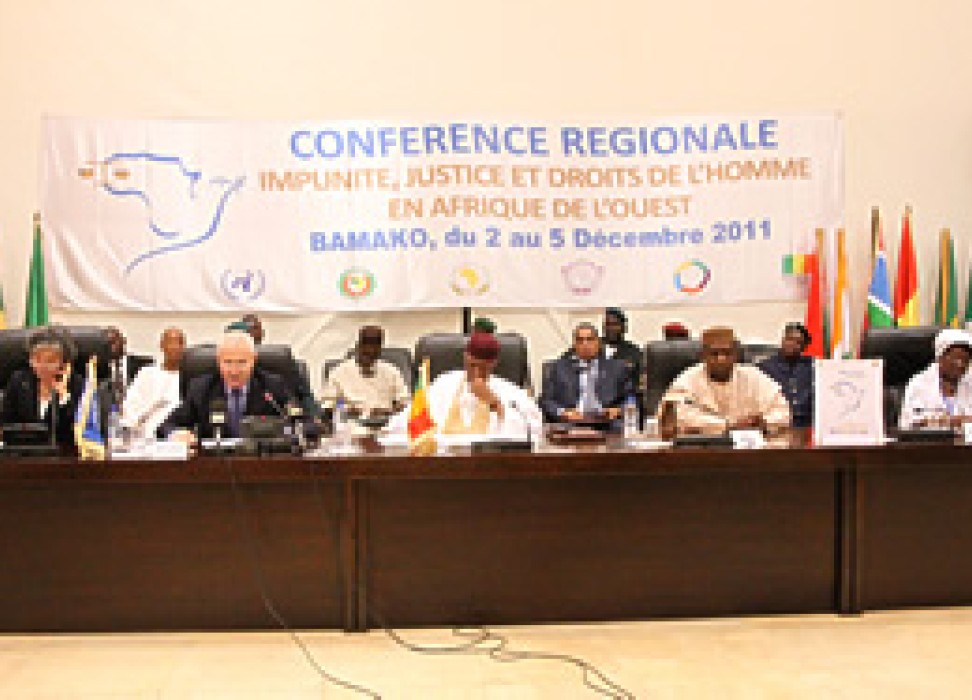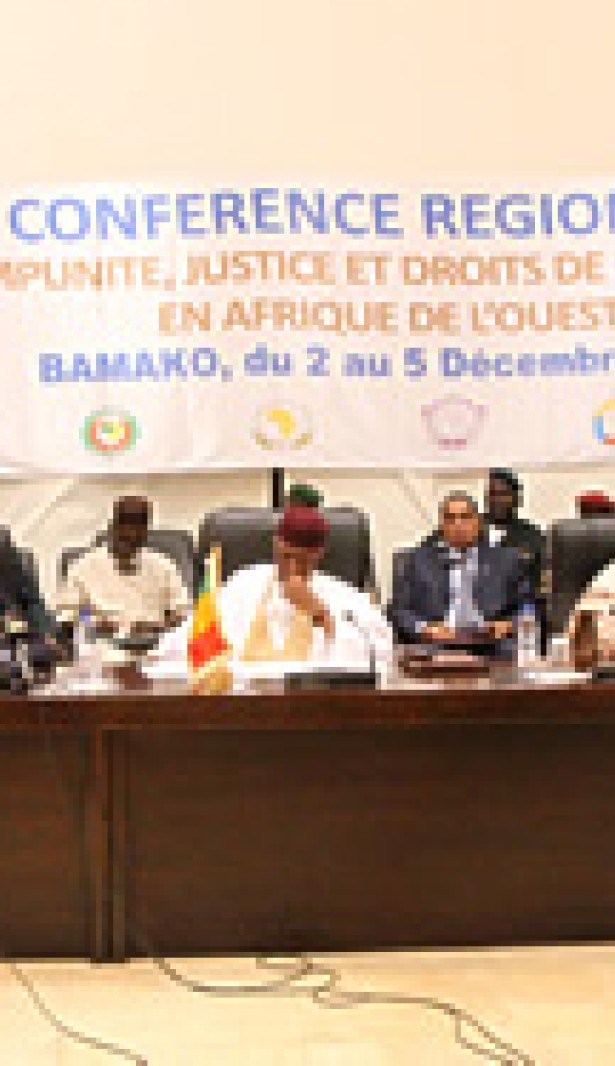End impunity for peace and development in West Africa
28 December 2011

"When we talk about impunity, justice and human rights in periods of transition to peace, where the need for reconciliation is urgent, it needs to be underlined that whichever path a country takes, amnesty for international crimes and gross human rights violations must not be one of them," warned UN Deputy High Commissioner for Human Rights, Kyung-wha Kang, at the opening of the Regional Conference on Impunity, Justice and Human Rights in West Africa which took place recently in Bamako, Mali.
The conference adopted a Declaration and Regional Strategic Framework (PDF) to promote justice, human rights and the fight against impunity, in order to strengthen the Economic Community of West African States (ECOWAS) and States of the sub-region. The Declaration complements the ECOWAS Protocol on Democracy and Good Governance, which ten years ago affirmed that human rights and justice are indispensable to peace and security.
“Our common area within ECOWAS and beyond faces many threats today, among which: organized crime, uncontrolled circulation of arms, drug trafficking and illicit trafficking of all kinds, factors that constitute social and economic disintegration,” said the President of Mali, Amadou Toumani Touré. “These threats are likely to undermine the stability of public institutions of our sub-region and the setting of foundations for democratic systems… I remain convinced that justice has a major role in ensuring social peace.”
Over 200 participants converged on Bamako including Ministers of Justice; Supreme Court representatives; representatives of Truth and Reconciliation Commissions; officials of the African Union, ECOWAS and the Mano River Union; officers of UN peace and political missions and UN agencies; experts of the International Criminal Tribunal for Rwanda; members of bar associations, national human rights institutions, civil society organizations and the media.
The Bamako Declaration they adopted advises strengthening good governance and the rule of law in order to prevent conflicts. Thematic recommendations include the consolidation of the rule of law; measures to reinforce national justice systems in complementarity with international justice; strengthening the ECOWAS Court of Justice; promoting human rights; the role of the media; and the fights against organized crime, illicit trafficking and piracy.
The Declaration pleads for greater harmonization of legal agreements and collaboration at the sub-regional, regional and international levels to address impunity for human rights violations. Participants added that countries should show stronger political will to fight corruption, a major source of impunity.
The Conference also underlined the need for West-African countries to join efforts in developing responses to transnational organized crime for law enforcement officials and the judiciary. The Declaration endorsed devising a regional strategy to strengthen cooperation between States in order to prosecute criminal groups which remain unpunished because they bribe or coerce the relevant authorities.
The Bamako Declaration also recommends promoting transitional justice mechanisms, such as the truth and reconciliation commissions.
Governments and stakeholders were encouraged to follow-up on the Conference by developing national roadmaps to ensure that the recommendations of the Declaration and the Strategic Framework were implemented.
28 December 2011

VIEW THIS PAGE IN: